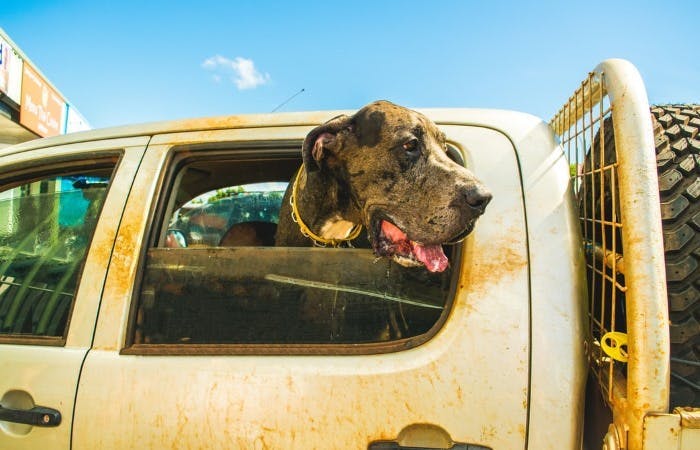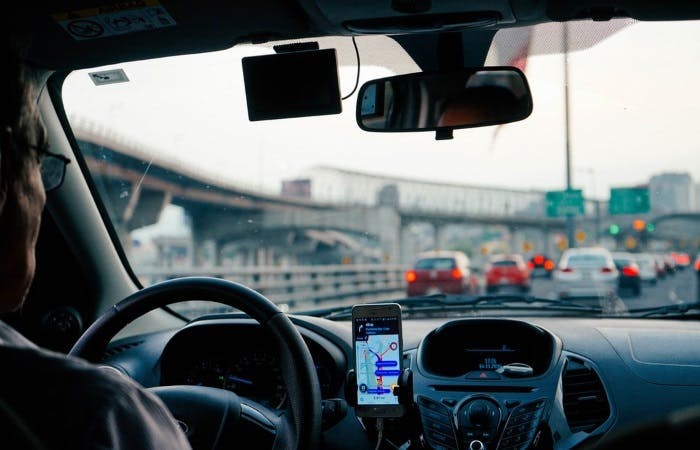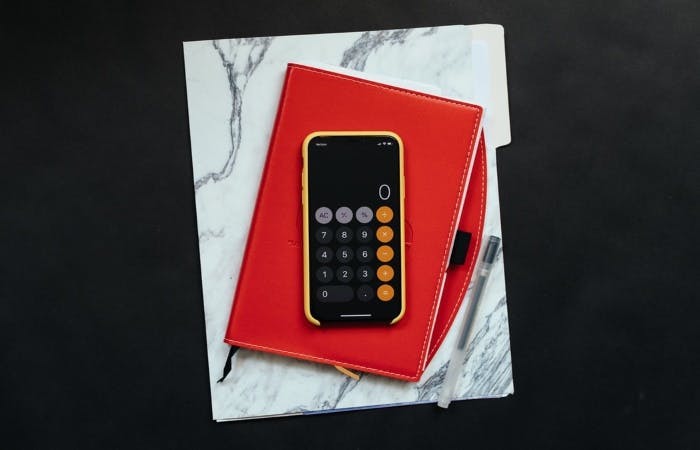Once you've passed your driving test, it feels like it should only be smooth sailing from then on. Unfortunately, taking to the roads isn't always as simple as it should be. In fact, it can often feel like you're paying an arm and a leg to drive! Matters get even worse when you take into account the cost of fuel, which is up and down like a yo-yo (but mainly seems to go up...). If this is a bit of a sore spot for you, you'll be pleased to hear that there are some clever ways to save fuel when driving.
If you're looking for ways to reduce fuel consumption and get more bang for your buck, our top 10 ways to save fuel when driving is just the thing you need.
1. Know how to cool down

While we might not able to enjoy as much of the hot weather as we'd like in the UK, we do get the occasional scorcher. Of course, we don't always have the luxury of being in our local beer garden or backyard when it hits. When you're driving, the hot weather isn't always as enjoyable as it should be. Heat + leather seats + enclosed space = an irritable, sweaty driver. The obvious solution to this particular problem is to either crack open a window or switch on the A/C. But, if you're looking to save fuel when driving, you need to make sure you're using the correct method.
If you're particularly fond of rolling down the windows, you might need to give it a rethink. While the cool air might feel incredible, it can lead to higher fuel consumption if you're driving at high speeds. The faster you're driving, the higher the wind resistance is when you have a window open—meaning you have to burn through more fuel to maintain your speed. So, if you're driving at speeds of 30 mph and over, you should use your A/C instead. While the artificial breeze doesn't compare to the feeling of real wind running through your hair, it is more fuel efficient.
If, on the other hand, you're driving at lower speeds, then rolling down your window is a much better alternative to using the A/C. If you find yourself struggling to drive in the heat, you might want to have a look at our dos and don'ts of driving in hot weather.
2. Sort out your bad habits
Believe it or not, your driving style can have a huge influence on how much fuel your car consumes. If you’re a bit heavy-footed with the pedals, you’ll want to opt for a gentler approach — braking sharply or trying to set off too quickly will have you guzzling much more fuel than you actually need. Similarly, drivers with a need for speed will find themselves using more fuel in the attempt to overtake other vehicles, only to find themselves at a red light anyway. If you keep to a constant speed, however, you won’t burn as much fuel. Additionally, if you put your hazard perception skills to good use, you can make sure you're prepared for any changes in the road — giving you plenty of time to change your speed gradually.
You’ll also find it beneficial to pay close attention to the sounds coming from your engine. Many drivers tend to wait too long to change to a higher gear, or switch to a higher gear far too soon, meaning increased fuel consumption.
If you tend to find yourself slipping back into bad habits far too often when driving, you might want to look into getting black box (telematics) insurance. With this, your insurer will closely monitor your habits, such as how gently or harshly you brake and accelerate. They'll either reward you with lower premiums for your good effort, or increase them if you need to improve. If you need an incentive to adopt better driving habits, this could be just the ticket!
3. Cut down on unnecessary weight

While we always encourage our drivers to pack their essential car items, it’s important to know what is and isn’t vital to keep in your car. Though it might seem rather obvious to point out, the heavier your car is, the more fuel it consumes. If you keep your car light, however, you won't end up using as much. For starters, get rid of any rubbish you might have accumulated — you really don’t need those takeaway coffee cups or empty chocolate wrappers. Then, take a look in your boot and glove box — take out anything that you won't actually use.
If you’ve got a roof box that’s currently not in use, take it off. Though it might seem like a lot of effort, it can help to decrease fuel consumption. As with windows, having a roof box on your car can increase wind resistance, meaning you have to use much more fuel to get anywhere.
Believe it or not, your fuel can also end up contributing quite a bit of weight. Instead of topping up your fuel all in one go, you might find it more efficient to just top up when you need it.
4. Check your tyres
All vehicle owners should ensure that their vehicles are properly maintained — not only to reduce the risk of a breakdown, but to also keep the roads safe. One of the most important things to keep an eye on is your tyres. If they’re underinflated, your car has to use a lot more fuel to keep moving. This is an issue that many in the UK suffer from. In fact, a study by Michelin found that those in the UK were “wasting £246 million a year on fuel and putting lives at risk by driving on dangerously underinflated tyres”.
If your tyres are between 7 and 14psi below standard recommendations, then they’re ‘dangerously underinflated’. Not only are you looking at a decrease in fuel efficiency by “about one mile per gallon”, you're increasing your chances of causing a serious road accident. That's because underinflated tyres can make it difficult to brake and steer. So, make sure you check your tyres carefully — they need to match the recommended pressure listed in your car's manual. We’d recommend you inspect your tyres every fortnight or so. It's important that you keep on top of it.
5. Plan your journeys

One of the easiest ways to save fuel is to plan your journeys more carefully. For example, if you’re the type of person who likes to do several errands over the course of a week, you might find it to be more cost-effective—and fuel efficient—to combine your journeys. By doing so, you won’t be going back and forth as much. If, on the other hand, you're going on a longer drive — you might want to use your sat nav to figure out which routes might be shorter or less congested.
Obviously, if you’re limited on free time, you might not be able to combine all of your errands into one big trip. If you try to do it every now and again, however, you could end up saving some serious cash.
6. Switch off for a while
If you find yourself stuck in a long line of traffic, you might be a bit tempted to keep the engine on and your foot on the clutch, just in case things start moving again. Keeping your car idle, however, can use up a lot of fuel unnecessarily. If you’re at a complete standstill, you should switch off the engine. Otherwise, you’re using up fuel and emitting carbon dioxide into the air for no reason. Once it’s time to go, it’s as simple as restarting once you’re on the move again.
7. Budget

Ah yes, the dreaded b-word. No matter how much you dislike budgeting, however, it’s something that you should already be doing as a car owner. You’re undoubtedly well aware of the heavy cost of owning a car — from insurance to road tax to fuel. With that in mind, you should set a careful budget and monitor how much you’re spending each month. If you notice that you’re fond of heading to a particular petrol station that favours higher prices for fuel, then you know you have a habit that needs changing.
It might also be worthwhile looking into loyalty schemes — many supermarkets offer customers loyalty cards that enable you to collect points on fuel. Tesco customers, for example, can earn 1 point for every £3 spent on fuel.
8. Sharing is caring
If you’re starting to notice that you don’t use your car that much, or you find yourself driving on the same route as a friend or family member, you might want to decide to share a car instead. Not only is it great for the environment, it’s also a bonus for your wallet! Whether you’re using the car on alternate days or both heading the same way for work, you’ll notice a significant reduction in how much you’re spending on fuel.
Of course, if you do end up sharing a car, we’d suggest you sort out exactly how you’re both going to pay for the fuel. You don’t want to end up fighting over who did or didn’t pay their way! You could take turns with paying for fuel and carefully record how much you’ve both spent each time. If you’re sharing a car, you’ll also want to make sure you’ve got the right insurance cover. It doesn’t matter if one of you already has cover, the second person also needs to be covered to drive the vehicle. Don’t try to ignore insurance — you could get points on your licence, a fine or even face disqualification!
9. Go eco-friendly

If you’re looking to save fuel when driving, opting for an eco-friendly car might be a worthwhile path to take. Not only are these types of vehicles better for the environment, they’re also great for your wallet. Going fully electric means you may even be able to forgo trips to the forecourt entirely, while a hybrid car can still see serious reductions in your fuel budget. The downside here, however, is that the upfront cost of your vehicle is likely to be much higher.
If you’re a little put off by the price, you’ll be pleased to hear that the government does offer grants for buying certain eco-friendly cars. You can find out more about this in our guide to switching to an eco-friendly car.
10. Stop driving
If you’ve tried out all of our tips and still find yourself spending too much on fuel, you might want to look at taking a short- or long-term break from driving.
For starters, try and see if you can avoid using your car to get to places you can walk, cycle or get public transport to. If, for example, you need to pick up milk, why not walk to your nearest corner shop instead of driving? By only using your car for longer journeys or work, for example, you’ll be able to save a lot of money in the long run.
If you’re constantly finding yourself struggling to pay for fuel, insurance and other maintenance bills at the end of the month, you might want to consider taking a long-term break from driving. If you hate the idea of selling your car, you could instead apply for a SORN. Your car will have to be kept on a driveway, in a garage or on private land — and you won’t be able to drive it on public roads. The upside, however, is that you’ll be able to stop taxing and insuring it. Of course, once you cancel the SORN, you will have to resume your payments.
Subscribe for driving advice, offers & more
We'd love to let you know about our courses, news and offers via email. You may unsubscribe at any time.
Star Genie Limited trading as PassMeFast. Company number 10093359
Copyright © 2024 owned by Star Genie Limited
PassMeFast, Blue Tower, MediaCityUK, Salford, M50 2ST
